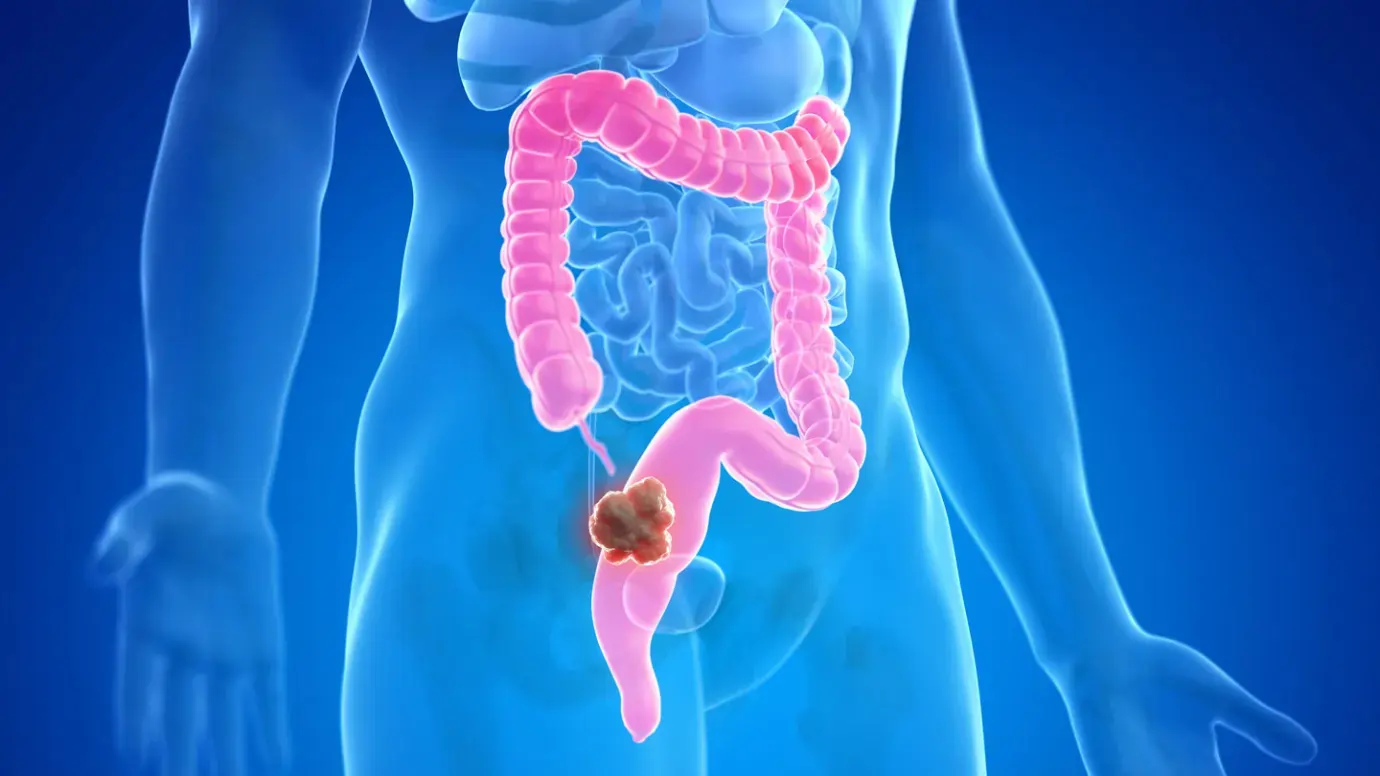
The biochemical processes underlying colon cancer have transformed how we approach both diagnosis and treatment. Colon cancer biochem is at the forefront of medical advancements, providing crucial insights into the disease’s molecular mechanisms. By identifying specific biomarkers and genetic mutations, healthcare professionals can now offer more tailored and effective treatments. This evolving understanding of colon cancer biochem is changing the landscape of oncology, offering hope for more personalized care. Let’s dive into the content to learn more about how biochemistry is shaping the future of colon cancer diagnosis and treatment.
Understanding the Role of Colon Cancer Biochem in Early Diagnosis
Early detection of colon cancer plays a critical role in improving patient outcomes, and biochemical markers are at the forefront of this effort. These markers, which are substances found in the blood, tissue, or other bodily fluids, help doctors detect signs of cancer even before symptoms arise. By analyzing these markers, healthcare providers can identify potential cases of colon cancer at a much earlier stage, allowing for timely interventions. This early detection is crucial as it increases the chances of successful treatment and helps tailor therapeutic strategies to the individual needs of the patient. Additionally, advanced technologies like the Extension Machine are now being employed to enhance the precision and efficiency of detecting these biochemical markers. The Extension Machine aids in analyzing complex biological data, offering a less invasive approach to diagnosing colon cancer and improving prognosis. Biochemical analysis, supported by tools like the Extension Machine, has become an essential tool in oncology, revolutionizing early diagnosis and treatment strategies.
The Link Between Biochemical Markers and Colon Cancer Diagnosis
Biochemical markers play a critical role in enhancing the accuracy and efficiency of colon cancer diagnosis. By measuring specific substances in the blood or tissues, doctors can identify the presence of cancer or monitor the progression of the disease. These markers, such as certain proteins or enzymes, help clinicians distinguish between benign conditions and malignancies, making early detection more reliable. Additionally, they provide insights into the molecular characteristics of the cancer, which can guide treatment decisions and predict how the cancer might respond to various therapies. This connection between biochemical markers and diagnosis significantly improves the potential for tailored, effective treatment plans.
How Molecular Insights Are Revolutionizing Treatment Strategies
Molecular insights are transforming how doctors approach the treatment of colon cancer, leading to more precise and effective strategies. By analyzing the genetic makeup of tumors, researchers can identify specific mutations and biomarkers that influence cancer growth and response to therapies. This knowledge allows for the development of targeted treatments tailored to the individual characteristics of a patient’s cancer. As a result, treatments are becoming more personalized, improving outcomes and reducing side effects. With the integration of these molecular techniques into clinical practice, doctors can move beyond traditional methods, offering patients therapies that are more aligned with the biology of their disease.
Key Advances in Colon Cancer Biochemistry: A Path to Personalized Medicine
Recent advancements in the understanding of colon cancer’s molecular and biochemical processes have led to a shift towards personalized treatment approaches. Researchers have identified key biomarkers that allow for more accurate diagnosis and tailored therapies, taking into account the genetic makeup of both the patient and the tumor. This evolving field enables healthcare providers to select the most effective treatment strategies based on individual profiles, improving outcomes and reducing unnecessary side effects. By focusing on the unique biochemical characteristics of each case, medical professionals are moving closer to offering precision medicine, where treatments are not only more effective but also more aligned with the patient’s specific condition.
The Impact of Biochemical Analysis on Colon Cancer Staging and Prognosis
The analysis of specific biomarkers and molecular signatures is essential in accurately staging colon cancer and assessing its prognosis. Mercy Care plays a vital role in utilizing these biochemical factors to gain valuable insights into the tumor’s behavior and potential for spread. This information helps determine the cancer’s severity, guiding treatment decisions and providing a clearer understanding of the likely outcomes. With a better grasp of the cancer’s molecular profile, doctors can customize treatment plans, focusing on the most effective therapies to target the tumor. Ultimately, this approach enhances the precision of diagnoses and improves patient care, leading to more favorable survival rates.
Exploring Biochemical Treatments: New Frontiers in Colon Cancer Care
Advancements in biochemical treatments are offering exciting new possibilities for improving the care of colon cancer patients. Researchers are increasingly focusing on targeted therapies that aim to disrupt the specific biological processes driving tumor growth, offering more effective treatment options with fewer side effects compared to traditional methods. These therapies often work by targeting mutations or abnormal protein expressions within cancer cells, making them more precise and personalized. As the field continues to progress, there is hope that these treatments will not only enhance survival rates but also improve the quality of life for patients by minimizing the harsh effects commonly associated with chemotherapy and radiation.
The Future of Colon Cancer Diagnosis: How Biochem is Leading the Way
The future of diagnosing colon cancer is being revolutionized by advancements in biochemistry, offering more accurate and less invasive methods. By utilizing cutting-edge biochemical markers and techniques, healthcare providers can detect early-stage cancers with higher precision. These breakthroughs are transforming the way medical professionals assess patient risk, enabling more personalized treatment options. With the integration of advanced testing methods, patients can expect faster diagnoses and treatments tailored to their specific needs, leading to improved outcomes and enhanced quality of care. The progress in this field marks a significant shift toward precision medicine, helping doctors make better-informed decisions that can ultimately save lives.
Understanding Tumor Biomarkers in Colon Cancer Management
Tumor biomarkers play a critical role in shaping the management of colon. Cancer by providing insights into the biological characteristics of the disease. These molecular indicators, found in tumor cells or blood, help doctors assess the presence. As well as predict how a patient will respond to different treatments. For instance, mutations in genes such as KRAS or BRAF. Can determine whether a patient will benefit from certain targeted therapies, while elevated levels of carcinoembryonic antigen (CEA). By analyzing these biomarkers, clinicians are able to personalize treatment plans, monitor treatment efficacy, and potentially adjust. This precision approach enhances the ability to manage colon cancer. More effectively, offering better prospects for survival and quality of life.
How Precision Medicine Uses Biochemistry to Tailor Colon Cancer Therapies
Precision medicine has revolutionized cancer treatment by focusing on the unique biochemical characteristics of each patient’s tumor. In a similar way, advancements in precision medicine are also beginning to improve management of conditions like Blood Pressure. By considering individual genetic factors, lifestyle, and other health markers, clinicians can create more personalized. Treatment plans for those with high or low Blood Pressure, offering therapies that are better suited to each patient’s needs.
Investigating the Genetic and Biochemical Drivers of Colon Cancer
In the evolving landscape of medical research, understanding the biochemical factors driving colon cancer has proven to be a game-changer. These insights are not just reshaping how we diagnose the disease but also how we approach treatment.
As science continues to unravel the complexities of colon cancer. The integration of biochemical research into clinical practice holds immense promise for improving outcomes.
At HealthAdvisor Talk we are committed to providing the most accurate and up-to-date information to. Help patients, caregivers, and medical professionals make informed decisions. Understanding the biochemical underpinnings of colon cancer opens new doors for better diagnosis, treatment, and, ultimately, hope for those affected.
Enjoyed the Read? Share It!








